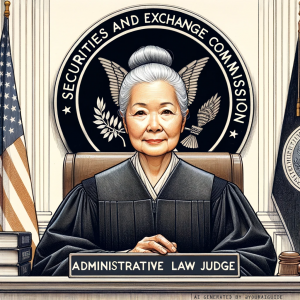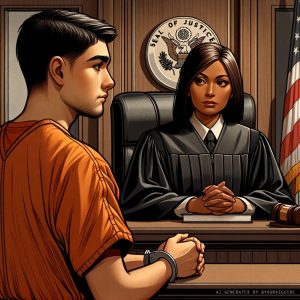SESSION PREVIEW
Major OxyContin case headlines December session

on Nov 22, 2023 at 1:58 pm

The justices will kick off the December argument session on Nov. 27 with oral argument in a pair of consolidated cases, Brown v. United States and Jackson v. United States, involving the Armed Career Criminal Act. The ACCA extends the minimum sentence – from 10 years to 15 – for an individual who had been convicted of a felony and possesses a firearm when that person has at least three “serious drug offenses.” The question before the justices is how to define “serious drug offense” for purposes of the ACCA. Eugene Jackson and Justin Rashaad Brown argue that the definition should incorporate the federal drug schedules that were in effect either when the individual committed the federal firearm offense (Jackson) or at the time of sentencing for that offense (Brown), while the federal government argues that it should instead incorporate the schedules that were in effect at the time of the state drug offenses.
On Tuesday, the justices will confront double jeopardy issues in the case of Damian McElrath, a Georgia man who was found not guilty by reason of insanity on one murder charge arising from the stabbing death of his mother, while he was found guilty but mentally ill on a different murder charge (as well as an aggravated assault charge).
On appeal, the Georgia Supreme Court threw out both of the jury’s verdicts and sent the case back for a new trial on all charges. It concluded that the verdict was “repugnant”: McElrath’s acquittal on one murder charge required the jury to find that he was insane when he killed his mother, but he could only be convicted on the other charges if the jury found that he was not insane.
When the case returned to the lower court, McElrath argued that the Constitution’s ban on double jeopardy barred the state from trying him again on the murder charge on which he had been acquitted. But the Georgia Supreme Court rejected that argument. It explained that a “repugnant” verdict is essentially “void” and therefore does not create a double jeopardy problem.
McElrath renews that argument in the Supreme Court, while the state defends the Georgia Supreme Court’s ruling. Under state law, Georgia contends, there was never a valid verdict in McElrath’s case, and he can therefore be retried.
The justices will then hear the first immigration case of the term. Under federal immigration law, the federal government can cancel the deportation of a non-permanent resident – that is, a non-U.S. citizen who has received permission to live in the United States on a temporary basis – if that person can show, among other things, that deportation would create an “exceptional or extremely unusual hardship” for an immediate family member who is either a permanent resident or a U.S. citizen.
Federal law also generally prohibits federal courts from reviewing decisions about whether to cancel deportation, except for “questions of law.” In 2020, the Supreme Court ruled that the term “questions of law” includes a mixed question of law and fact, such as the application of a legal standard to undisputed facts.

(Tori Madden)
In Wilkinson v. Garland, on Nov. 28, the justices will weigh in on the interaction between these two provisions – that is, whether federal courts have the power to review an agency’s determination that a noncitizen did not meet the “exceptional and extremely unusual” hardship requirement to cancel deportation.
The question comes to the court in the case of Situ Wilkinson, who traveled to the United States from his home in Trinidad and Tobago in 2003 and overstayed his tourist visa. Wilkinson argued that deporting him would be an “exceptional and extremely unusual” hardship for his elementary-school-aged son, for whom he serves as the sole provider of support; the child’s mother, his former girlfriend, suffers from depression and does not work. But an immigration judge rejected that argument, and the U.S. Court of Appeals for the 3rd Circuit ruled that it did not have the power to review the immigration judge’s determination.
On Nov. 29, the justices will hear oral argument in Securities and Exchange Commission v. Jarkesy, a case presenting two different themes of the court’s 2023-24 term – efforts to limit the power of federal administrative agencies and decisions arising from the U.S. Court of Appeals for the 5th Circuit.
Events leading up to the case now before the court began in 2013, when the SEC brought an in-house enforcement action against George Jarkesy, who launched and served as an investment adviser to two hedge funds, eventually finding that he had committed securities fraud. The SEC ordered Jarkesy to pay $300,000 in fines and ordered his firm to repay almost $700,000 in gains.

(Tori Madden)
Jarkesy appealed to the 5th Circuit, arguing that the SEC’s structure and enforcement powers violate the Constitution. The 5th Circuit agreed. It held first that the SEC’s use of in-house judges to seek civil penalties violates the Seventh Amendment’s guarantee of a jury trial. Second, it held, by giving the SEC broad authority to choose between in-house proceedings and going to federal court, the SEC violated a principle known as the nondelegation doctrine, which requires Congress to provide an “intelligible principle” when delegating regulatory power. Third, the court of appeals concluded, the protections from removal provided to the SEC’s in-house judges violates the separation of powers.
The SEC asked the justices to weigh in, telling them that allowing the 5th Circuit’s decision to stand would have “massive” and “substantial” practical consequences.
The justices will hear oral argument on Dec. 4 in one of their highest-profile bankruptcy cases in recent memory: Harrington v. Purdue Pharma, a challenge to the approval by the U.S. Court of Appeals for the 2nd Circuit of a bankruptcy plan for Purdue Pharma, the maker of OxyContin.
Faced with thousands of lawsuits accusing it of having deceptively marketed the highly addictive drug, Purdue Pharma filed for bankruptcy in 2019. It proposed a reorganization plan that would remake the company as a nonprofit devoted to addressing the public health problems caused by the opioid epidemic. But the plan would also release members of the Sackler family, which owned the company and had taken billions of dollars out of the company in recent years, from any future liability for claims against them.

(Tori Madden)
The U.S. Trustee, the division of the Department of Justice that oversees the administration of bankruptcy cases, came to the Supreme Court over the summer, asking the justices to put the plan on hold. The justices agreed to do so and set the case for oral argument in December.
There are two main questions before the court. The first is whether the U.S. Trustee or the Canadian creditors challenging the plan have a right to do so at all, while the second question is whether the court of appeals was correct to confirm the plan. And more broadly, the case raises questions about whether and when it is appropriate to resolve mass tort cases – that is, lawsuits brought by a group of people who have been harmed in a similar way, such as in a plane crash or by a defective product – through the bankruptcy system.
On Dec. 5, in Moore v. United States, the court will hear argument in a challenge to the constitutionality of a provision of the 2017 Tax Cuts and Jobs Act known as the “mandatory repatriation tax,” which required U.S. taxpayers who owned shares in foreign corporations to pay a one-time tax on their share of the corporation’s earnings, even if those earnings were reinvested in the corporation and the taxpayers did not receive them.
Article I of the Constitution requires Congress to apportion any “direct taxes” among the states. The 16th Amendment carves out an exception to that rule, allowing Congress to tax “incomes, from whatever source derived,” without apportioning that tax among the states.

(Tori Madden)
Charles and Kathleen Moore went to federal court to challenge the tax. They own a 13% stake in an Indian corporation that supplies power tools to small Indian farms. The corporation reinvested its earnings rather than distributing dividends, and the Moores never received any income from their shares. The couple contended that the mandatory repatriation tax – which increased their tax liability by approximately $15,000 – violated the 16th Amendment. Under the Supreme Court’s cases interpreting the 16th Amendment, they argued, income must be distributed before it can be taxed, and therefore the mandatory repatriation tax is a direct tax that is not apportioned among the states.
After the U.S. Court of Appeals for the 9th Circuit rejected that argument, the Moores asked the justices to weigh in.
The Biden administration counters that invalidating the tax could cost the government hundreds of billions of dollars in revenue. It argues that the tax is an income tax and therefore constitutional, because both the history and the text of the 16th Amendment make clear that Congress can tax undistributed corporate earnings. But in any event, the government continues, the tax is also constitutional because it is an excise tax – that is, a “tax upon the privilege of doing business through a” foreign corporation controlled by U.S. taxpayers.
In Muldrow v. City of St. Louis, on Dec. 6, the justices will consider whether Title VII of the Civil Rights Act, which prohibits employment discrimination, bars discrimination in decisions about transfers without a separate determination by a court that the transfer decision caused a significant disadvantage to the employee.
The question comes to the court in the case of Jatonya Muldrow, a sergeant with the St. Louis Police Department. She filed a lawsuit against the department, alleging that she was the victim of sex discrimination when she was involuntarily transferred from her position in the Intelligence Division to a patrol position because her supervisor wanted to hire a man for her job. The U.S. Court of Appeals for the 8th Circuit ruled for the police department, reasoning that Muldrow’s transfer had not resulted in a significant employment disadvantage for her.
The city of St. Louis echoes that reasoning in the Supreme Court. It points to the text of Title VII, arguing that it requires a “significant disadvantage in the form of material, objective harm” to the plaintiff.
But Muldrow counters that the whole purpose of Title VII is to eliminate discrimination. Nothing in Title VII requires showing the type of material disadvantage that the city would read into the text, she says. Instead, the Supreme Court’s cases, the history and structure of Title VII, and the longstanding views of the Equal Employment Opportunity Commission all make clear that it is enough that she was the victim of discrimination because of her sex.
This article was originally published at Howe on the Court.




